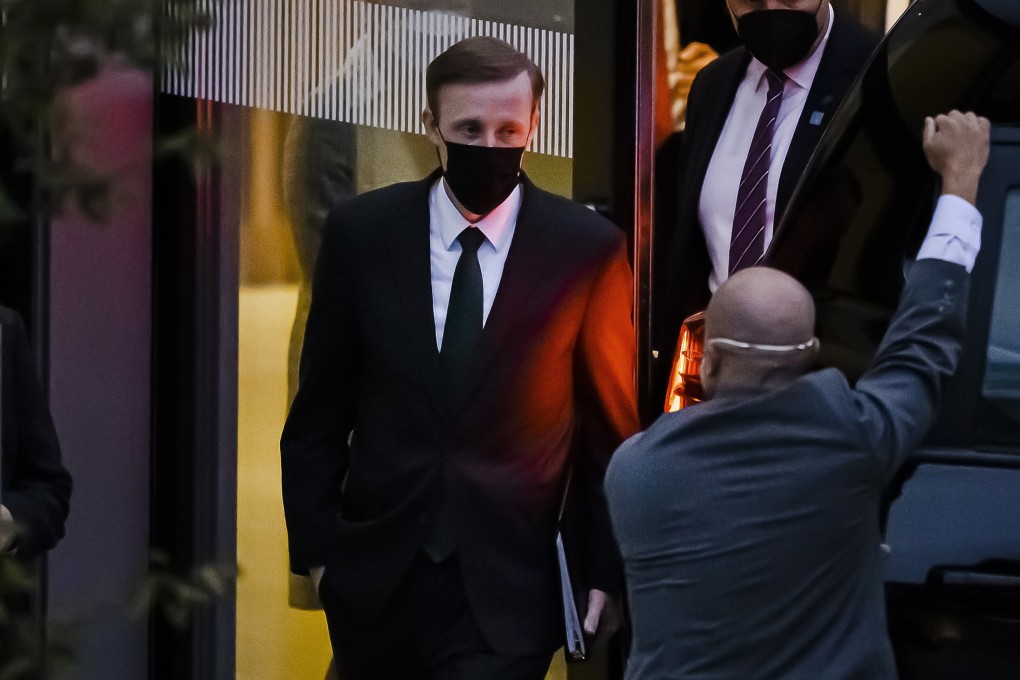Advertisement
US, Chinese diplomats’ meeting in Zurich paves way for continued talks
- US President Joe Biden and Chinese leader Xi Jinping plan to meet virtually before the end of the year, reports say
- Jake Sullivan tells Yang Jiechi that the US will keep engaging with China ‘at a senior level to ensure responsible competition’
Reading Time:2 minutes
Why you can trust SCMP
61

Jacob Fromerin Washington
The latest round of talks between top national security officials from Washington and Beijing finished in Zurich with a commitment to continue speaking at a senior level.
Six months after tempers flared at their dramatic first meeting in Alaska, US national security adviser Jake Sullivan and China’s top diplomat Yang Jiechi met again on Wednesday to discuss the nations’ long-standing grievances, as well as potential areas of cooperation, just as they did when they met in March.
“Mr. Sullivan also raised areas where the United States and the PRC have an interest in working together to address vital transnational challenges, and ways to manage risks in our relationship,” the White House said after the meeting. The Chinese foreign ministry said the two had discussed climate change and “regional issues of mutual concern”.
Advertisement
After the meeting, Bloomberg and The Wall Street Journal reported that US President Joe Biden and Chinese leader Xi Jinping were planning to meet virtually before the end of the year, in what would be their third conversation this year.

Advertisement
According to the White House, Sullivan also “raised a number of areas where we have concern with the PRC’s actions, including actions related to human rights, Xinjiang, Hong Kong, the South China Sea and Taiwan”.
Advertisement
Select Voice
Select Speed
1.00x